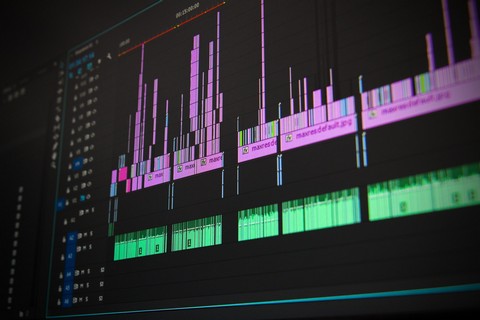Is Urban Music About to End?
Envision this: you’re a member in a broadcast game show, and you’ve made it right to the last round. After you turn your wheel or pick your letters or pick your inquiry, the main thing remaining among you and all the cash you had always wanted is a basic errand — characterize the expression “urban contemporary.”
Might you be able to do it? OK win that cash?
Regardless of a suffering discussion around the name, it is, for some, still indistinct what exactly comprises the class of “urban contemporary,” and how or why the importance of the term has relocated in the course of the most recent a very long while. Industry partners have been pushing to change the name since in any event 2018.
On June 5, in light of the quickly expanding force behind the battle for Black lives in the U.S. furthermore, around the globe, Republic Records reported that it would “evacuate ‘urban’ from the name’s verbiage in depicting divisions, representative titles and music kinds,” refering to their conviction that “after some time the significance and undertones of ‘urban’ have moved and formed into a speculation of Black individuals in numerous segments of the music business, including workers and music by Black craftsmen.”
A couple of days after the fact, on June 10, the Recording Academy — the parent association of the Grammy Awards — declared that it would rename the Best Urban Contemporary Album and Best Rap/Sung Performance classes to Best Progressive R&B Album and Best Melodic Rap Album, separately. The previous incorporates “the more dynamic components of R&B and may incorporate examples and components of hip-jump, rap, move, and electronic music.” The last envelops tunes with “solid and away from of song joined with rap rhythm.”
Regardless of whether these new portrayals make things any more clear relies upon how clear you thought they were previously. Strikingly, Latin classes including the term were prohibited from reevaluation. (In spite of the fact that not by everybody.)
However, what is urban, contemporary or something else? What does dispensing with the term achieve? Furthermore, why now? What is it about the instigating of another social liberties development that has at long last provoked foundations to act?
Instituted in 1974 by unbelievable radio DJ and radio program executive Frankie Crocker, “urban contemporary” was initially intended to portray the expansive blend — of R&B, hip-jump, disco, rap, and everything “from James Brown to Dinah Shore” — that Crocker was playing at the recently made WBLS station in New York. In spite of being one of the most well known radio organizations of the time, Black music stations couldn’t draw in the worthwhile promotion deals that would enable them to flourish.
“The urban class helped Black music traverse to standard graphs,” says Gail Mitchell, official chief of R&B and hip-jump at Billboard. “There was an observation that Black radio wasn’t their crowd, or that Black individuals didn’t accepting from their brands. The urban name helped make the white administrators increasingly agreeable.”
With Crocker’s astute rebrand, Black music was recently attractive as a product that white organizations could bundle for standard — i.e., white — crowds to expend.
Preceding Croker’s mediation, music by Black artists were designated “race records” before the rise of Rhythm and Blues during the 1940s and the term become undesirable. Urban contemporary’s utilization as an attractive item additionally opened the entryways for Black individuals at the official level to play a part in shepherding the gifts of Black performers. Be that as it may, as per Mitchell, it was a twofold edged blade.
“What happened is that the urban name enclosed those officials. It was an awful word to the white guards. On the off chance that urban music is so mainstream, for what reason aren’t dark officials getting fair progression in the record organizations? For what reason would they say they aren’t getting similar advantages and advancements and promoting spending plans? They don’t have the opportunity to cross into different classes the manner in which white officials do, and they are advised to remain in their path. Be that as it may, at that point white administrators are acquired to regulate urban divisions and don’t have the foggiest idea about the way of life. We ought to have a state and a job in acquiring benefits to the music organizations,” she says.
On the other hand, Mitchell says that regardless of these industry battles, she’s going back and forth about losing “urban” as an umbrella term, since she stresses it might add to the deletion of the recorded heritage of Black music. Thinking back to the ’60s, Black radio helped spike the achievements of the social liberties period, sharing procedures to battle segregation and to caution audience members of police action. Dark radio has since quite a while ago had a focal job in Black opposition. “We can’t forget about what the principle issue is,” Mitchell says, “and that is calling for racial uniformity in the music business.”
Despite the fact that Crocker’s unique goals were respectable — and perceive that his arrangement worked — a few, similar to creator Feminista Jones, state the term never fully fit in the first place. “I don’t think [urban] is just for Black craftsmen any longer, however it likewise ought to never have been. Urban portrays urban communities, and it isn’t simply Black individuals who live in urban areas.”
As indicated by author Taylor Crumpton, some portion of the issue is that the term urban wasn’t sufficiently exact. “In its unique setting, ‘urban’ streamlined the hints of Black people group in metropolitan regions, like Philadelphia Soul or Motown’s relationship with Detroit. [But] it neglected to consolidate the hints of Black people group in provincial regions, for example, the South, who occupied with Americana, nation and society music, yet experienced racial segregation from guards in their separate classes,” she said.
The chaos over the business’ underlying refusal to arrange either Beyonce’s “Daddy Lessons” or Lil Nas X’s “Old Town Road” as blue grass melodies remains as a prime case of Crumpton’s point. The opposing limitation and expansiveness of the “urban” classification has, amusingly, implied that regardless of what sort of music dark craftsmen really make, they are completely cleared into a similar class .
Music and culture essayist Sharine Taylor agrees. “It certainly gives a green light for fans to restrain the limit of what craftsmen can do, if there’s a pre-recommended box for what sort of music to anticipate. For craftsmen, it tends to be troublesome in the event that they’re attempting to investigate new sounds or leave into a new sonic area and can’t do as such,” she said.
Charlie Harding, co-host of the digital recording Switched On Pop, says these logical inconsistencies keep on springing up on the grounds that they are established in the music business’ bigot history of racial domination.
“The music business is continually attempting to recognize Black music without calling it Black music,” he says.
“The manner in which we make these classes strengthens the current force elements in the public eye — explicitly racial elements. At the point when popular music took off, we despite everything lived in authorized isolation. Music outlines were isolated into ‘Dark’ and ‘not Black’ we despite everything live with that inheritance, and are continually attempting to discover approaches to fix that. Enmeshed in the industrialist need to sell records, there’s a kept mishandling to address the base of this [historical] viciousness.”
Republic Records’ position is by all accounts an endeavor to hit the nail on the head this time. Be that as it may, Crumpton thinks the onus is on an alternate association: The Recording Academy.










